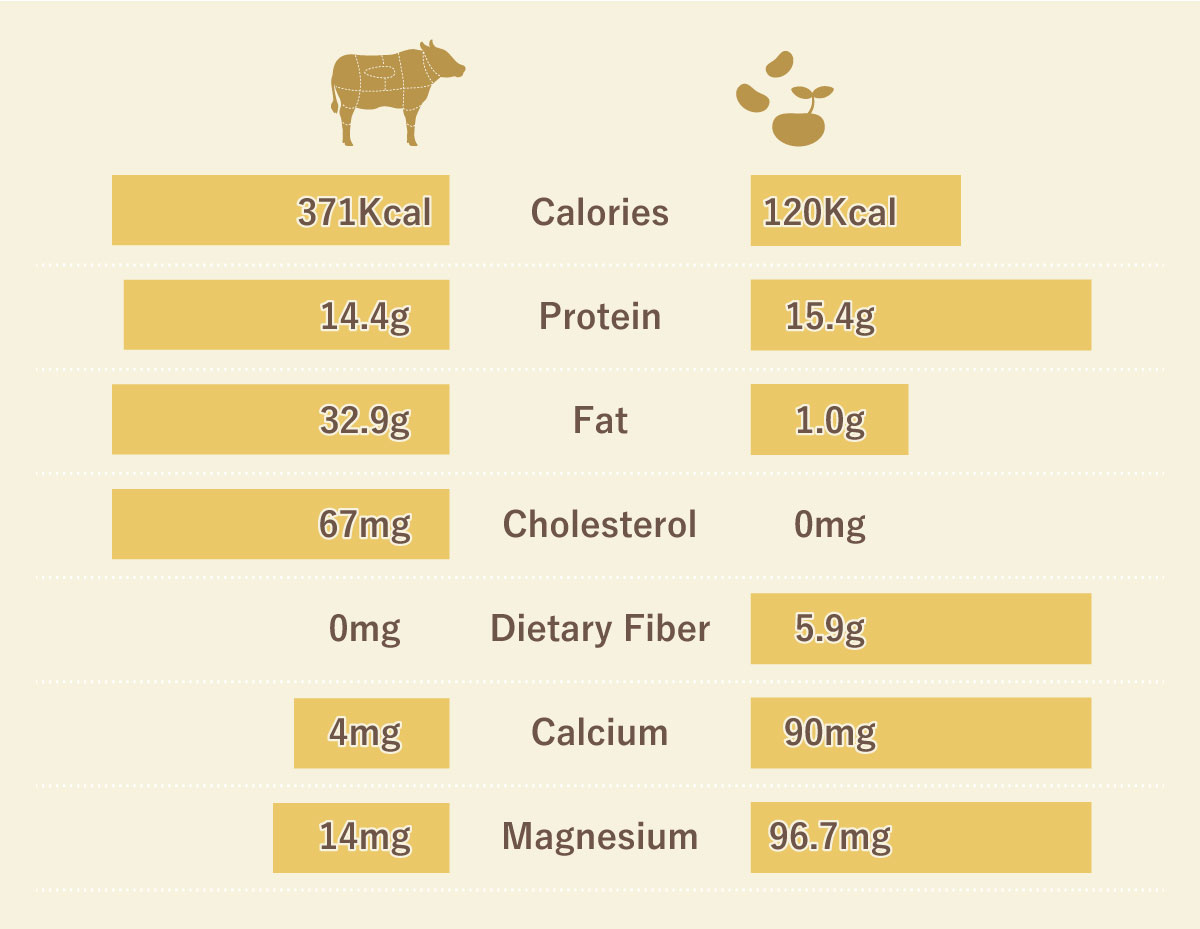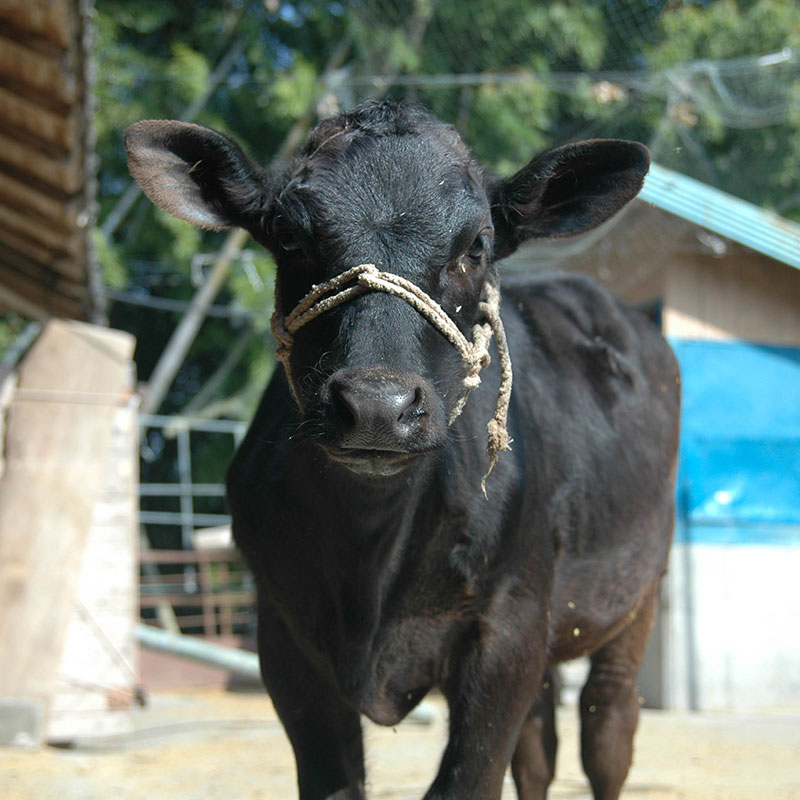


We’ve all heard the words “climate change,” “global warming,” “deforestation,” and so on. Many people think they can’t do anything to stop these phenomena. But they can!
According to Livestock’s Long Shadow, a 2006 Food and Agriculture Organization of the UN report, the global meat industry is responsible for 18% of the world’s greenhouse gas emissions; this is more than all modes of transport (cars, airplanes, ships, trains, etc.) combined!
You don’t need to wait for slow government legislation or expensive industry innovation around technologies like renewable energy, electric automobiles, etc. The most effective individual action you can take in the name of environmental protection is to change the way you get your proteins.
02
This graphic shows massive deforestation due to population explosion and a resultant increase in meat consumption.
※There was a 20% loss of Amazon rainforest in the four decades between 1970-2010. If we continue to cut down trees at the current rate, by 2030 the loss will reach 60%. Source: World Wildlife Federation
03
In terms of protein production, soy is 20 times more efficient than cattle.
※According to the Japan Ministry of Health, Labour and Welfare, recommended daily intake of protein is roughly 1g per kg of body weight (e.g., a person weighing 62kg — which is the world average — needs to consume 62g of protein per day).
04
Switching from a meat-based diet to a soy based diet saves 740㎡ of forest. That’s an area the size of three tennis courts.
※Based on 22.4kg of global consumption of beef per person, per year. (Mitsui Global Strategic Studies Institute) and 3.3km of land required to produce 100g of beef (Mary T. and Frank L. Hoffman Family Foundation)
※Note that global consumption of beef does, of course, differ: average annual consumption, per capita, in the U.S. is 38kg. This increases a non-beef-eating American’s area of resurrected forest to 1,256㎡. By comparison, annual per capita consumption in Japan is 9.8kg, for a resurrection of 324㎡.

Additional details in the following short clips are from Cowspiracy, a 2016 US documentary film
※These clips are posted with the permission of A.U.M Films & Media
A concise video outlining how dietary choices impact the environment (2.5 min.)
A video illustrating how meat consumption destroys the environment (60 sec.)
A convincing case for shifting to a plant-based diet (140 sec.)
A video demonstrating deforestation caused by meat consumption (60 sec.)

Soy beans are so high in protein that they are metaphorically called “meat of the soil” in Japan and “flesh of the field” in German.
In addition, the fact that soy beans are rich in minerals like calcium and magnesium, while being high in fiber and low in cholesterol, make them an ideal food.
A new WHO report linking red and processed meats to cancer is another persuasive reason to consume plant rather than animal proteins.
As new scientific evidence has shown that we don’t need to consume animal proteins in order to be healthy, the western world is seeing an explosion of people switching to vegetarian and vegan diets. Many of these people echo the sentiments of professional athletes whose performance is improved after giving up meat, saying that they feel healthier and more energetic on plant-protein diets.

※Based on 100g of raw beef vs. 100g of hydrated textured soy protein (TSP) before seasoning or cooking.
Source: Japan Ministry of Science & Technology, “Standard Tables of Food Composition in Japan” (2015 revised edition), based on raw imported boned rib beef and textured soy protein.
© Somenoya
Athletes whose performance has improved after going vegan (3 minutes)
A physician testifies that veganism is perfectly healthy (2 min. 20 sec.)
※These clips are posted with the permission of A.U.M Films & Media

50-70 billion livestock animals are currently slaughtered around the world annually for food. This means that roughly ten animals are killed annually for each person living on the planet. Choosing plant instead of animal proteins saves lives – and we believe that many people would choose not to sacrifice any animal if they knew they had healthy and delicious alternatives.

© 2018 Someno's TOFU Co., Ltd. All rights reserved